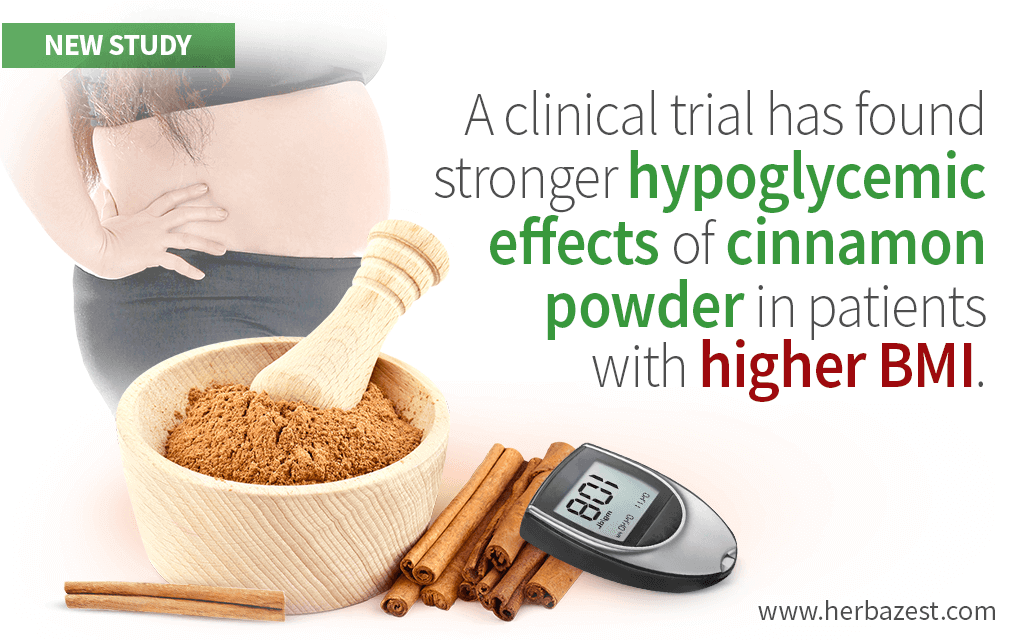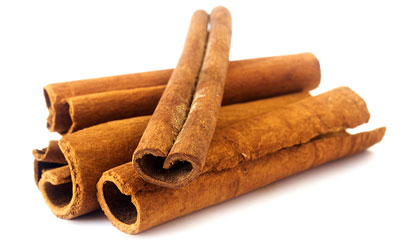Type 2 diabetes mellitus (DM) is one of the most common metabolic disorders worldwide. High body mass index (BMI) has long been identified as a major risk factor for type 2 diabetes as well as disease-associated complications.1
While a number of studies have previously shown hypoglycemic benefits of cinnamon for diabetes, others found contradictory results, raising the need to explore other variables that may play a role.2 Consequently, the present study aimed to evaluate the relationship between cinnamon and type 2 diabetes depending on individual BMI.
The Study
This 2019 triple-blind, placebo-controlled, randomized clinical trial was carried out by researchers at the Iranian Diabetes Clinic of Yazd University of Medical Sciences. It involved 140 type 2 DM patients, who were divided into four groups: 1) a cinnamon group with BMI ≥ 27; 2) a cinnamon group with BMI < 27; 3) a placebo group with BMI ≥ 27; and 4) a placebo group with BMI < 27.
The regimens consisted of taking 500 mg capsules with cinnamon bark powder or a 500 mg placebo capsule twice a day for three months. Before and after the trial, all participates had their anthropometric (BMI, body fat, and visceral fat), glycemic (FPG, 2hpp, HbA1C, fasting insulin, and insulin resistance), and lipid (total cholesterol, LDL-c and HDL-c) profiles measured.
The Results
Contrary to the placebo group, the cinnamon-receiving participants from both BMI groups experienced improvements in anthropometric, glycemic, and lipid outcomes all together. Interestingly, the patients with BMI ≥ 27 have shown more significant improvements than those with BMI < 27, except for total cholesterol and LDL-c levels.
For reference, a BMI of 25-29.9 is classified as overweight, while a BMI above 30 is considered obesity.3
What Does this Mean?
This study has two important findings. First, it has demonstrated the link between cinnamon and diabetes and the herb's usefulness in type 2 DM management. Second, cinnamon's hypoglycemic effects may be dependent on BMI, which makes it a valuable addition to diabetes treatment for patients whose excess body weight puts them at higher risk for complications, such heart disease or kidney failure.
Other herbs with hypoglycemic abilities include ginseng, goldenberry, or pumpkin.
Sources
- Clinical Nutrition Journal, Efficacy of cinnamon in patients with type II diabetes mellitus: A randomized controlled clinical trial, 2019
Footnotes:
- Journal of the American Association of Nurse Practitioners. (2017). Obesity: Risk factors, complications, and strategies for sustainable long-term weight management. Retrieved October 17, 2019 from https://www.ncbi.nlm.nih.gov/pmc/articles/PMC6088226/
- International Journal of Food Sciences. (2019). The effect of different amounts of cinnamon consumption on blood glucose in healthy adult individuals. Retrieved October 17, 2019 from https://www.hindawi.com/journals/ijfs/2019/4138534/
- CDC. (2017). Defining Adult Overweight and Obesity. Retrieved October 17, 2019 from https://www.cdc.gov/obesity/adult/defining.html





